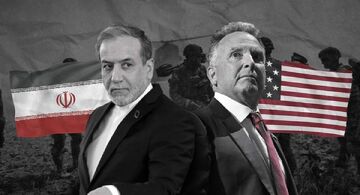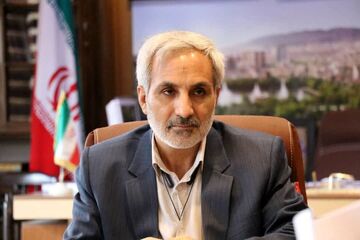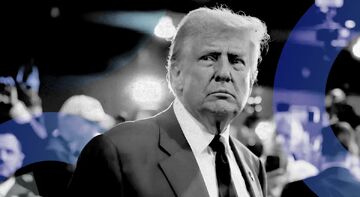TEHRAN(Bazaar) –Shireen Tahmaasb Hunter, a professor of political science at Georgetown University, tells the Bazaar that the US wants to get as much concessions from Iran as possible while keeping most of the sanctions in place.
She says: “Whether the current round is the last or not would depend on whether substantial progress is made on essential issues. If so, there may be a shorter round of talks to iron out minor issues.”
“If Iran's and 4+1's positions remain far apart on central questions, I believe that talks would come to an end, at least for a period.,” Hunter comments.
Following is the text of the interview:
Bazaar: Enrique MORA. Deputy Secretary-General European Union said that we needed a spirit of compromise to return to full implementation. Given the various unfavorable trends to undermine the JCPOA, it is necessary to conclude these negotiations sooner. What countries does Mora mean by unfavorable trends to undermine the JCPOA?
Hunter: JCPOA from the beginning had serious opponents in Iran, the US, and in the region. In the Middle East, Israel, Saudi Arabia, and some of the Persian Gulf Arab states, especially the UAE were opposed to it. Now that there is a chance that some form of agreement on this issue could be reached, they have increased their activities. In the US, Republican senators have been active in creating difficulties for the Biden administration on this issue. Israel's prime minister just advised Biden not to return to the JCPOA. In Iran some commentators and former officials have also spoken against compromising with the US. I am not even quite sure about the kind of game that Russia and its envoy Ulyanov are playing.
Bazaar: Before the beginning of the eighth round of talks, Iranian Foreign Minister Hossein Amirabdollahian stated that "in reviewing the latest texts obtained from the Vienna talks, parts of our demands in the field of lifting sanctions have not yet been considered." Given these statements, do you think this is the last round of talks?
Hunter: Whether the current round is the last or not would depend on whether substantial progress is made on essential issues. If so, there may be a shorter round of talks to iron out minor issues. However, if Iran's and 4+1's positions remain far apart on central questions, I believe that talks would come to an end, at least for a period.
Bazaar: Mikhail Ulyanov has announced that Iran will take the deadline in early March seriously. We will have a period of one to two months to prepare for the implementation of the agreement. What does he mean by a period of one to two months to prepare for the implementation of the JCPOA?
Hunter: I find it strange that the Russian representative should speak for Iran. In general, Iran's practice of relying on messengers to communicate with other parties is not constructive. Messengers have their own objectives and there is no guarantee that they act scrupulously. I find it strange that Iran, which emphasizes its independence, relies on Russia and China as intermediaries in talks with other parties. As to the March deadline, again, if reaching agreement required only a few more days, the deadline might be extended a little. The question is who will be taking the decision for Iran? Iranian leadership of Russia and China? If Moscow and Beijing want Iran to reach an agreement, then they can pressure it into it. The problem is Iran's unwillingness to talk directly with the US. This is self-destructive behavior.
Bazaar: According to the statements of the Iranian officials, it seems that some disputes, including on the issue of enriched uranium and advanced centrifuges, have not been resolved yet. Of course, the two sides have not yet strayed from the agreement, but the agreement is not very close. What is your assessment?
Hunter: As with every negotiation the hardest issues are the last to be solved. The problem is that Iran wants sanctions relief while also protecting most of its nuclear program. Meanwhile, the US wants to get as much concessions from Iran as possible while keeping most of the sanctions in place.
Bazaar: Al Mayadeen reports that a draft of a 20-page document has been prepared in Vienna that sets out the framework for a comprehensive political agreement. The implementation of this draft will begin with the lifting of sanctions and Iran's permission to benefit from the transfer of its revenues. There is a positive atmosphere for reaching an agreement in the next few days or maybe weeks. What is your assessment?
Hunter: As I said before, the length of the document is not the yardstick for success. Rather, what is important is whether it covers the most controversial matters. A two-page document which covers the key issues is better than a hundred-page document which leaves them out.
















نظر شما